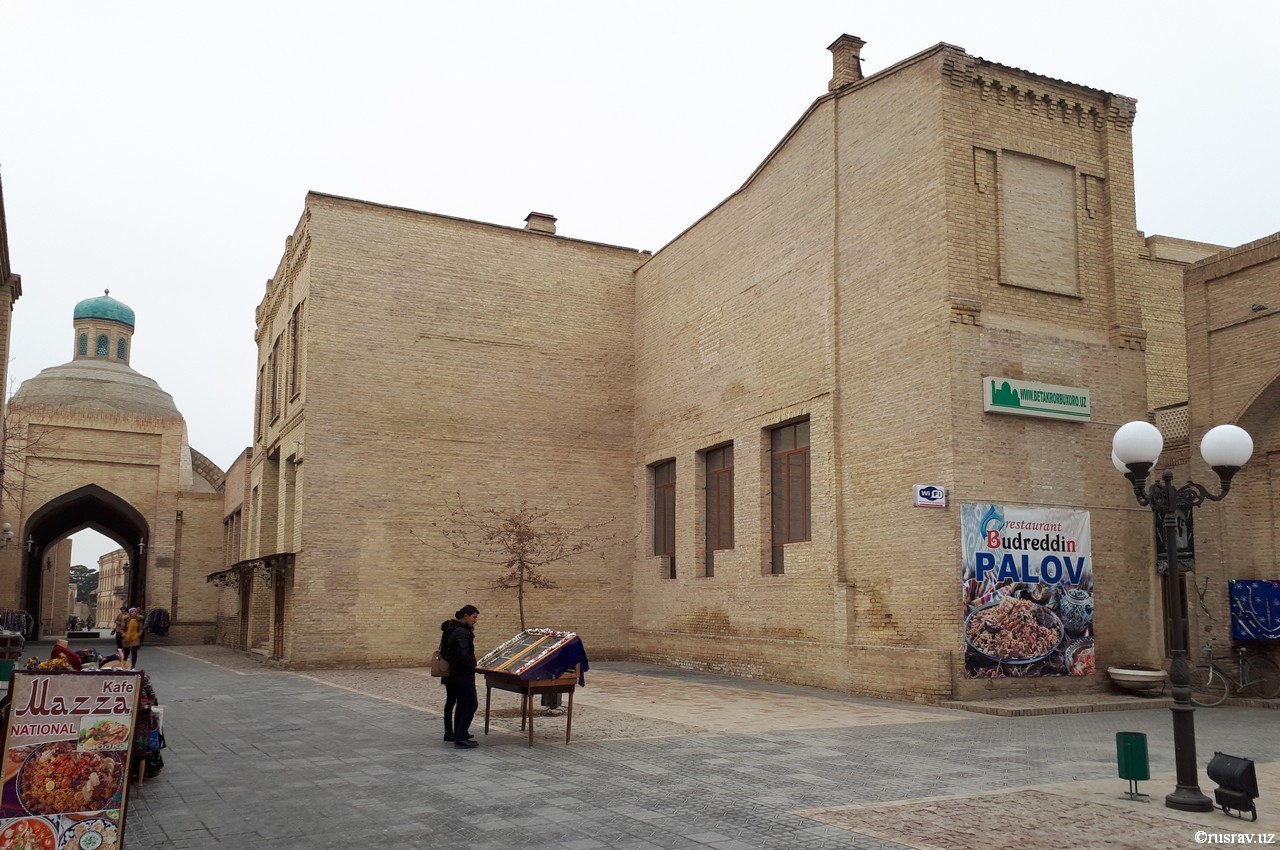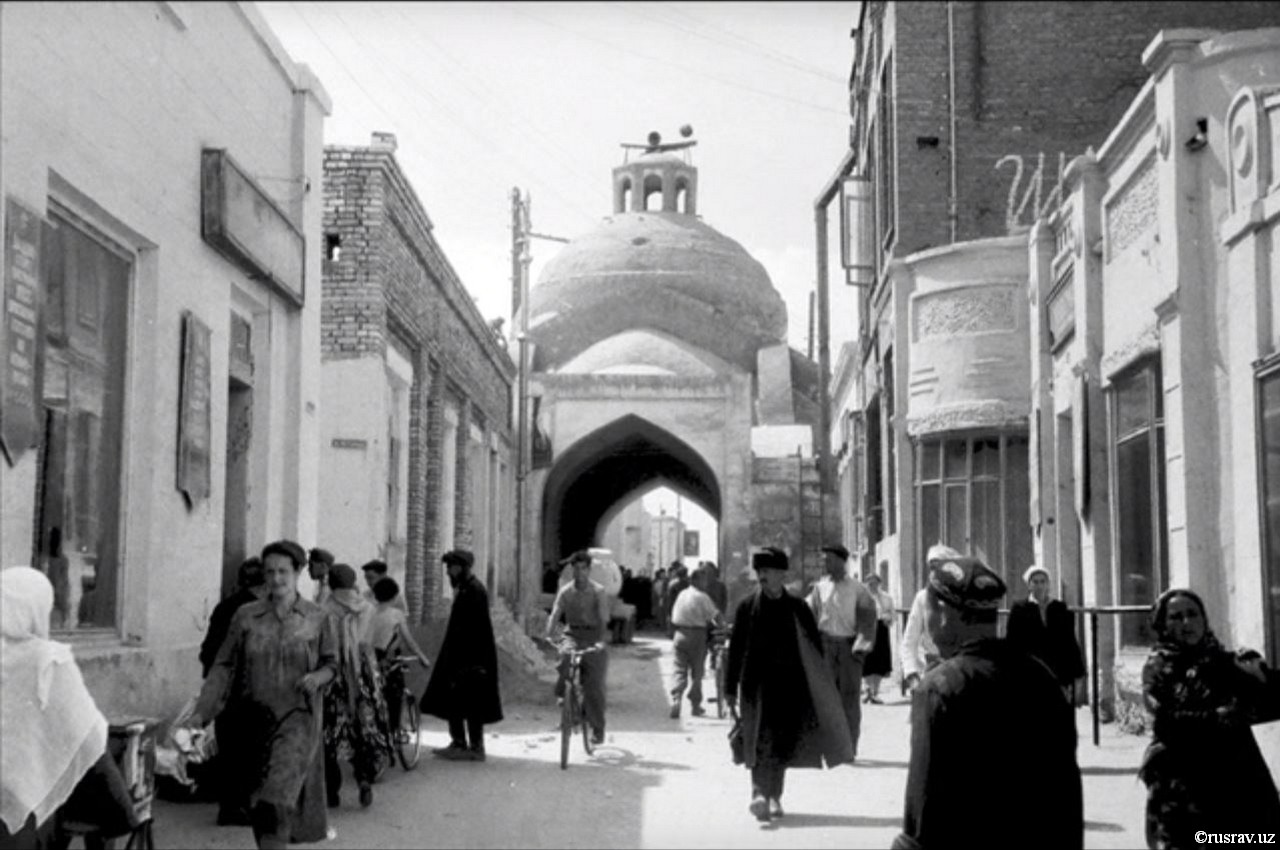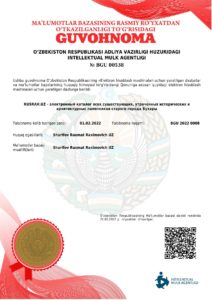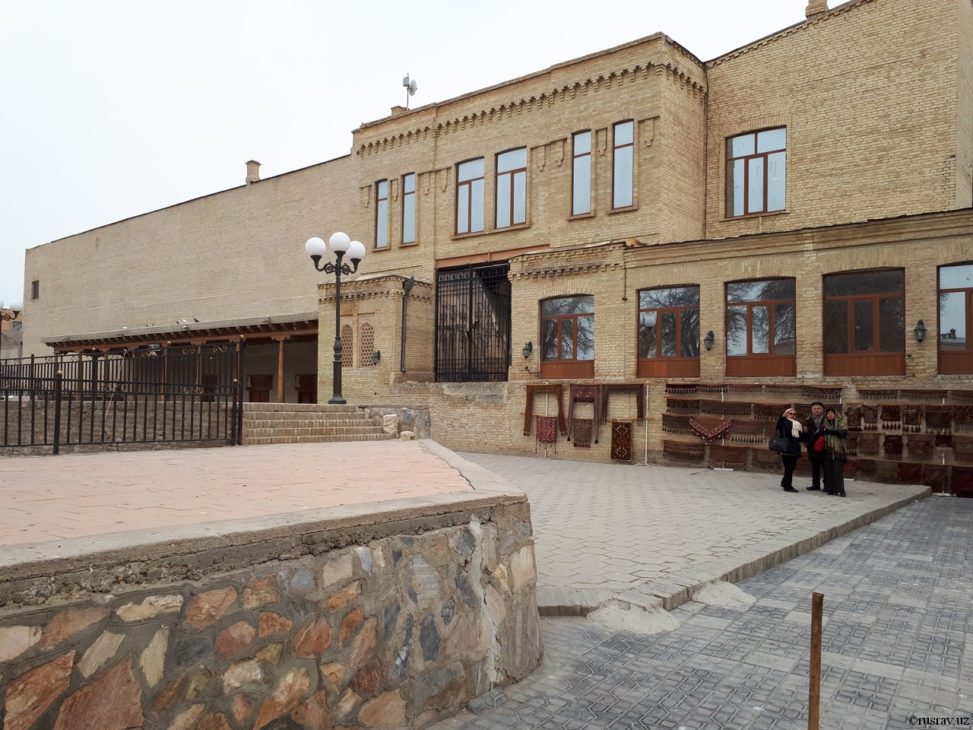Office building of the Postal and Telegraph Service of Tsarist Russia (1st passage).
There used to be a large caravanserai of 60 rooms belonging to the emir’s treasury, known by the name of Hindu (Karshi) and entirely occupied by Indians. The caravanserai occupied almost the entire quarter, it was also called Filkhonа (“Room for elephants”), because Indian merchants who brought elephants stopped there. It was on its territory in 1912 that the 1st passage was built, where, among other things, there were mail and telegraph services. I would like to note that at the end of 1873 the postal service of tsarist Russia in Bukhara was organized. Along with postal communication, telegraphic communication arises and gradually develops.
At the end of the 19th century, at the beginning of the 20th centuries, public buildings in Bukhara and its environs were erected under the supervision of a special commission, which included Russian engineers Sakovich and Margulis, craftsmen Khodja Abdurakhim Khayatov and Usto Abdugafur Karaulbegi, as well as an official – a representative of Kushbegi – Mirzo Isometdin Karulbegi . The order to build was given by the Upper Kushbegi, at the expense of the Lower Kushbegi. Construction within the city was carried out by Hussein Devonbegi, and Latif Devonbegi was in charge of the suburban buildings of the emir; technical supervision was carried out by the aforementioned commission.
For several decades, engineers Sakovich and Margulis built a number of buildings that meet the style of architecture of modern Russian cities. First, a special embassy building of modest size appeared at the gates of Mazar-e-Sharif. This new embassy also housed a postal station and telegraph. Then, in the 80s, two small buildings were built near the gates of Sheikh Jalol, intended primarily for mail and telegraph. But then the post office and telegraph were transferred to the 1st passage, built for Russian trading companies in the city center on the site of the old Hindu (Karshi) caravanserai.
Date of construction 1912. # 447A.






Comments are closed.